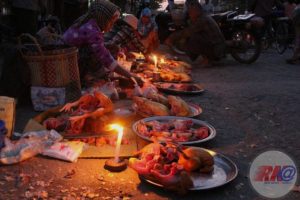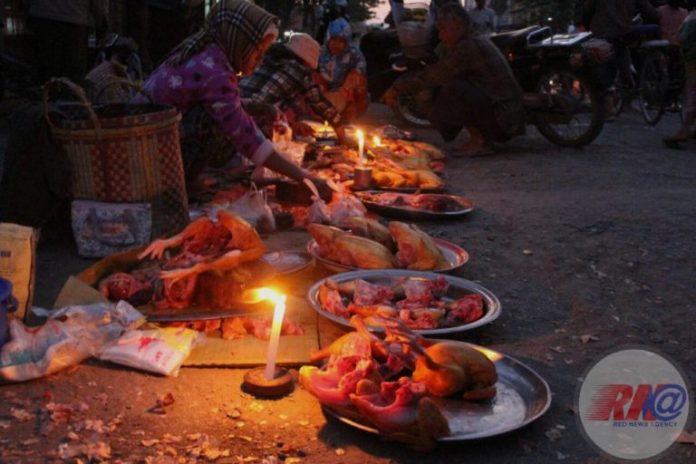In Mon State, the Tatmadaw’s issuance of a night curfew, known as Section 144, imposed on four townships, is making it difficult for some workers to enter their workplaces on time.

Daw Hla, who sells vegetables at the lamp market in Thanbyuzayat, said, “The lamp market usually operates between 2 or 3 in the morning, and then we sell goods back in our village. Now that these orders have been issued, we do not dare to go out, so we have to trade in the afternoon instead of early in the morning. At this time it is very hot and tiring.”
Rubber plantation workers are also worried because they have to work at night.
“It’s not that I’m scared, it’s that I do my own thing, but I have to be a little more careful during this time of unrest. Sometimes they intimidate each other.” said Nai Sike Rot, a rubber tapper from Panga village.
Restaurants, roadside carts and shops are required under Section 144 to close before 8 pm and return to their homes.
Since February 8, more than 90 townships in Myanmar are subject to the imposed Section 144 curfew, which restricts people from going outside from 8pm to 4am.
In addition, five or more people are not allowed on highways, public roads or lanes. People may not gather in parks or public places. Nor are loudspeakers allowed in any wards.
The Tatmadaw claims the curfew and other rules are for peace and stability, but its obvious purpose is to try and prevent more protests. Despite the imposition of section 144, daily protests continue to take place in cities across the country. Dubbed the Civil Disobedience Movement (CDM), it is attracting a diversity of protestors including many ethnic communities and civil services from government departments. In one community over 40 police officers also joined pro-democracy protests.

